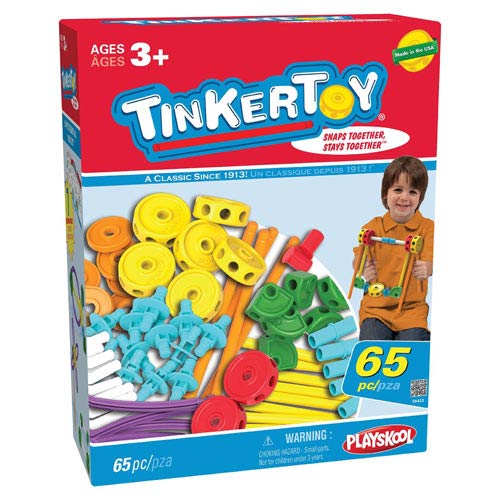At this point you’re probably aware of the alphabet soup that sexual identity has become. LGBT has been replaced by LGBTQIA, while others are rolling in even deeper distinction, such as the unintentionally hilarious acronym, LGBTTQQFAGPBDSM being used by Wesleyan University. Facebook has 56 different gender identity options, but even FB’s heroic attempts at inclusivity doesn’t include an array of other identities covering every possible combination of sexuality possible and ignores that special magic known as otherkin. Then of course there’s an slew of other identities that aren’t even sexual, (I think), such transable, transfat, and the hilarious transnigger.

And you thought I was joking.
Certain segments of young people tend to take these identities and run with them for all they are worth. Most of us have come across an insane Tumblr profile of someone listing off a half-dozen different identities to which they hold and demanding people address them by the ‘proper’ pronouns. Here’s a sample list of some of them, and, if the rabbit-hole really interests you, here’s a guide to creating your own personalized pronoun.
— Greg (@FoolishReporter) May 25, 2015
It is easy to laugh at all this craziness, but this trend of extreme self-identification points to something much deeper than a few troubled individuals. This letter to Ask Amy illustrates nicely:
However, I was never very open about my sexual orientation. I felt like I always knew, but at the same time I didn’t know how to figure it out.
When I was 17 I went to a party; there was a girl there I liked, but she came with a guy. At some point, she came over and just started kissing me and it was like magic. Then the guy came over. It turns out she wasn’t interested in me, but was doing something he had talked her into.
That was my only experience with another woman — but I know I’m bisexual. I came out at school to some friends, but no one took it seriously. I even came out to my family — but my mom is the only one that took it seriously.
I have been in a relationship now with a man for a year and a half. I love him, but I feel like a part of me is missing. Turning 20 is a wake-up for me. I’m figuring out what I want to do in my life (and friends are getting married). The guy I’m with takes my confession of being bi as, “You’re just bi-curious.”
I’m thinking about asking if we could take a break so that I can try and find myself, but I’m terrified that if I do the door will close entirely. Should I “come out” again and hope I’ll be taken seriously and that he’ll support me?
Here’s a girl whose sole lesbian experience is a single meaningless kiss at a party and who’s in a serious relationship with a man, but still feels compelled to identify as bisexual, even to the point of destroying her relationship to experiment. The key to the whole issue is that she feels a part of her is missing and she wants her identity taken seriously.
A key need of man is identity. His identity informs him as to who he is, but man is a social animal, so who he is almost entirely a function of his social relations. He cannot create his identity in isolation. Once developed, his identity exists as a spiritual sense of place telling him where he belongs in the world and how he relates with the people around them.
A key part of growing up is developing this identity, finding out who you are. A mature adult has discovered and established his identity; he might further develop, refine, or even alter his identity, but he has a secure sense of his place in the world. (There is a reason listening to 40-year-olds talk about finding themselves is disgusting, it is an aberrant and unhealthy infantalization of themselves).
The proper time for developing this identity is early adulthood, what we now call adolescence. A child’s identity, his spiritual sense of place, is not something that really exists as independent of his parents, he is basically a cypher of his parents. It is early adulthood where his he really begins to form his own independent identity.
In a healthy society, identity formation is a relatively straightforward process. You belong to you family, you adopt the faith, ideology, and history of your thede, to a greater or lesser extent, you become economically productive and contribute to society, you find a spouse get married and have children, you make a few friends, involve yourself in the community, and adopt a leisure activity or two along the way. Your particular quirks, skills, and deficiencies naturally grow out of this process.
It is fairly easy to have a sense of place when you can tell yourself “I am John Yeoman, son of Jack Yeoman, an Englishman of the County of Smallshire. We Yeoman’s have been Anglicans attending Smallshire Church for 5 generations. I am a farmer who works the land my fathers have for more generations than can be counted. I am husband of Jane Yeoman and father of 4 children. At the pub on Fridays, where I am known for losing at cards, I play the fiddle and retell stories about our childhood pranks on Mr. Cooper with my childhood friends.”
That sort of identity writes itself and grows naturally. When you are part of a culture, do things for others, and are socially connected to the community around you, your identity forms on its own and you learn who you are organically. A spiritual sense of place just happens.
In our modern society though, this process doesn’t happen. Think of your average “adolescent”. At the time when a person should be developing his identity, he is stuck in a public school doing nothing productive to anyone else, while learning multiculturalism, how evil his country and people have been to oppressed minorities. He lives with his family in a neighbourhood he moved to just a few years ago when his parents upgraded their house. His family, if he is lucky, consists of an intact nuclear family, maybe a cousin or two, and the occasional visit from his grandparents, if he is not, he lives in a broken home with a single mother, maybe a step-father. He probably has some friends, most of which he will never see again after high school. He probably doesn’t go to church or participate in any social activities with anybody who is not also an adolescent. He is definitely not married and any relations with the opposite sex he has had has assuredly been temporary and known to be so beforehand. Maybe he has a hobby or a sport or two, maybe he doesn’t.
So what is he supposed to base his identity upon? His disconnected family? His Christmas-evening only religion? His oppressive country? His lack of culture (called multiculturalism)? His grades? His sport? It’s all kind of lacking isn’t it?
Look a the letter writer above? She’s 20, she’s been a biological adult for 6-8 years now and she’s just now thinking of “finding herself” possibly by destroying the one thing she has that will let her actually find an identity. What has she accomplished that she can base her identity? What place has she found in her community? Has she been economically productive? Maybe a few part-time jobs. Does she have a family of her own? Just a boyfriend she’s considering leaving. She needs an identity, something that defines her in relation to the world around her, and will make the world take her seriously (ie. will give her a spiritual sense of place). Yet she doesn’t have anything, and it’s not really through any fault of her own.
This is the allure of these weird identities young people have taken too adopting. They do not have the experiences, productivity, community, or social relations to create true identities, so they have to start making up their own. Creating identities usually requires hard work though; you can not become a violinist without practicing or a volunteer without volunteering.
But if you take and magnify a personal quirk, you can easily create a new identity. Like to emotionally bond to people before having sex? You’re a demisexual. Have a low libido? You’re asexual. Like White Fang and think wolves are cool? You’re a wolfkin.
This extend beyond just the weird sexual deviancies though. How many young moderns base their sense of identity on other hedonic pleasures? How many young people have their music consumption as their main identity? How many young people have gamer as one of their main identities? How many young people are identified through their drug use? Their fashion sense? Their sexual conquests? Their television tastes?
Doing these activities may or may not be particularly wrong, but using such as a primary identity indicates something is broken somewhere. Something is missing in their development when a young adult’s primary identity come through shallow pleasures rather than through something true and real.
But this goes beyond just young adults, even our adults are constantly “finding themselves.” Stable social relations, productive economic work, community involvement, friendships, family, all are declining. People are becoming more isolated from each other and more alienated from their work. They need to find something to fill this gap.
This is why a homosexual can’t just be a guy who privately sodomizes other men, he must be out of the closet displaying his pride. He has no other identities to hold onto, for he has no deep social relationships and no spiritual sense of place, so he has to make an identity out of where he enjoys sticking his penis. This is the true horror of the homosexual movement, the abolition of the self until only your identity is your penis.
This is the modern world, a place where people are so empty, their identities so broken, that it has become mainstream for people to base their identities on, to relate to the world through, their hedonic tastes. A healthy society is one where identity creation is a natural process that flows organically from the process of growing up. A person should be able to naturally find and fill productive and healthy social roles, so he can find a spiritual sense of place, so he can belong.






